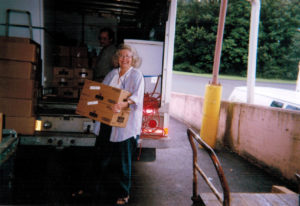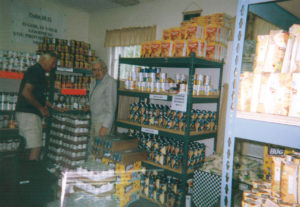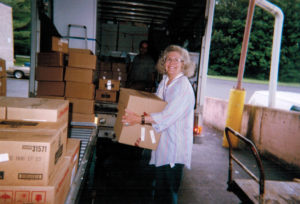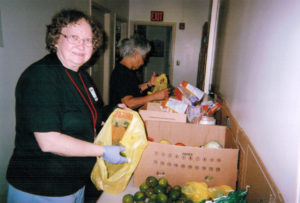Paul, Duct Tape, and Homelessness
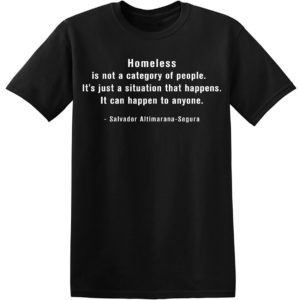
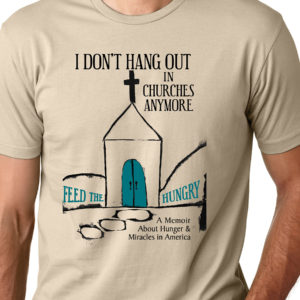
Paul has been on my mind all week.
One of my oldest friends, I knew him and worked with him when I worked and lived in Virginia – just outside Washington D.C.
Back then, we had Kelly Girls. Paul was my very best Kelly Girl. I could send him anywhere – well, not to the male chauvinist lawyer who would only pay for a cute legal secretary. But all the others loved his work.
He showed up on time for his assignments and he turned out a perfect work product. He was a bargain. Whatever he did, he made the client feel that Paul gave more than the money’s worth for every job done.
Everyone knew Paul was homeless. Nobody cared. He was the best typist out there. (This was before computers, you understand.) A quality work product counts for a lot when it comes time to pay the bill, after all.
So why have I been thinking about Paul all week? It was the Duct Tape that did it. My watch band broke and I need the watch. I drove over to Genter’s Jewelry Store in Saugerties and discovered a “for rent” sign where the “open” sign used to be. Mr. Genter always fixed everything . He didn’t care whether it was a watch band, a clock, a necklace.
He also sold silver and gold chains at bargain prices. And, he custom designed a coin for me. His work was exacting. Genter’s was my go-to destination for all things jewelry.
Genter’s is a statistic of the Coronavirus. With Mr. Genter gone, what was I going to do? I physically grieved when I saw the sign in the window.
I went straight for the Duct Tape. I now wear a watch held together with Duct Tape. I’m getting used to it, actually. My sense of urgency diminishes a little more each day.
I’m sure I’ll get along just fine with the Duct Tape. Paul Did.
Duct Tape adorned most of Paul’s clothes and anything else he used. Duct Tape held Paul’s shoes together. Duct Tape held the watch on Paul’s arm. Duct tape even kept Paul’s eyeglasses going. Finally, Duct Tape held Paul’s winter coat together.
So, following in Paul’s example, Duct Tape will keep my fitness watch going.
I rather like my new Duct Tape look. And, I like remembering Paul. He always made me smile. And, smiles these days are hard to come by.
Thanks Paul! You set a good example. This Duct Tape will work until I can find Mr. Genter, just as Duct Tape held your shoes together until you could find a newer used pair of shoes.
And, thank you for reading this article. Please forward it to your preferred social media network.
Thurman Greco
Woodstock, New York
PS: You can order one or more of the fancy T-shirts pictured in this post today at :
www.thurmangreco.com.
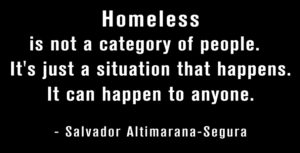
I also wrote about Paul in “No Fixed Address.”

Miracles – Because Hunger is Not a Disease

Miracles happened in the food pantry. It took me a while to realize this and then it took another while to accept that such a thing could happen in the basement of a small town church in Upstate New York.
I sneaked miracle stories in on the blog posts. I sneaked them on the pages of “I Don’t Hang Out in Churches Anymore”. Finally, I gave them their own pages – as much as I had the nerve for anyway, in a short book “Miracles”.
Research on miracles taught me some things.
I learned that miracles often include weeping statues, broken legs healing straight, relics, stigmata, and visions. The pantry miracles included none of those things.
Our miracles never really cured anyone. I never saw a statue weep, and no one came down with stigmata.
Instead, they showed us all how to grow and love and forgive. It was giving away the food that was the tip off for me.
As far as I can tell, the food pantry miracles were not the result of prayer.
God just showed up and brought food. Once he came disguised as a fireman. Each miracle was a complete surprise, a unique and different event. God came when the pantry shelves were bare and the lines were long.
I don’t think the miracles proved that any of the shoppers or volunteers were more faithful than anybody else in town. Frankly, I think that some of us saw the miracles as coincidences or something.
However they were seen, these events made an impact on a small number of people who saw them as they happened.
The clincher for me occurred when I finally realized and accepted a few basic things:
Carloads of food never showed up when we didn’t need it.
Boots never appeared on the shelves disguised as toothpaste in the summertime.
Nobody ever brought a handful of nails to fix the barn when the wall wasn’t falling.
Two books appeared on my desk out of the ethers: “Miracles” by Tim Stafford and “Looking for a Miracle” by Joe Nickell gave a feeling of legitimacy to my thoughts and memories.
Because of Tim Stafford, I wrote my book entitled “Miracles”. He was direct about a few things – one of them being that people should not spread “miracle gossip”. Because of his feelings about what he called “miracle gossip”, I’m compelled to relate the pantry miracle stories.
To sneak them in blog posts does not do them justice.
Thank you for reading this blog post. Please refer it to your favorite social media network.


Thurman Greco
No Fixed Address

“No Fixed Address” is dedicated to those in our country with no roof over their heads. See your neighbors, your friends, your relatives, in new ways as they describe their daily lives in their own words.
The people in this new book reveal themselves to be both brave and fearless as they go about their activities: work, laundry, children’s homework, appointments. Mostly they live like the rest of us. They just have no roof over their heads.
“No Fixed Address” is my newest book in the Unworthy Hungry series. It’s easy to read and understand. You won’t be bored, not even for a minute.
I hope you’ll order it today. Get an extra copy for a friend!
This book has an extra surprise. When you get a copy, you’ll be making a donation to a good cause. You’ll be fighting hunger and homelessness.
It doesn’t get much better than that!
Thank you for reading this article!
Please forward it to your preferred social media network.
Thurman Greco


Hungry People
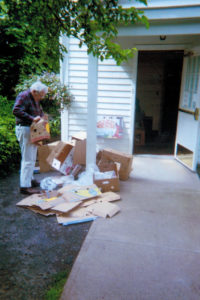
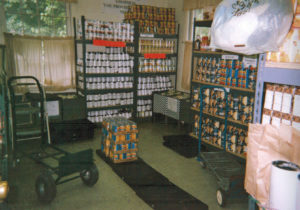
When an economy tanks, hungry people find the food pantry. The tanked economy of 2008 has been referred to many times in the past few days on the news. References to past broken economies are made every day.
The situation is very different this time, but for the hungry people, the situation is the same.
In 2008, New York got with the program quickly, it seemed. The Hunger Prevention Nutrition Assistance Program people handed down guidelines mandating specific foods for the pantry room. Produce, whole-grain bread, eggs, dairy products appeared on the shelves. Crowds and an ever-lengthening hallway line became the norm.
In Woodstock, the pantry attracted several hundred hungry people to its basement room every pantry day. The line formed outside the door at 1:00 for the 3:00 opening, regardless of the weather. Hungry people who visited the pantry a week ago and took home groceries, would today be out of food and need more.
Today, in 2020, some pantries are closed. That puts even more pressure on the pantries that are open. Food pantry volunteers are not only serving more and more hungry people because of the layoffs of the pandemic. They are also serving people who shopped at the now-closed pantries.
When people live close to the edge, they have no reliable cushion. They’ve lived in a situation where they make choices every day: food or medicine, food or rent, food or gas. Now, when the coronavirus strikes, they have no either/or choices.
Food pantry volunteers take precautions. They take temperatures as volunteers enter the pantry. Volunteers wash hands repeatedly and adhere to the six-foot social distancing guidelines.
But the need for food is not imaginary.
Volunteers are realistic. They can’t kid themselves into believing nothing will happen to them because they feed hungry people. They know they’re taking chances. They also know they are doing a needed job. For many volunteers, it’s something they need to do.
There are no words for this feeling.

I have a small thank-you gift for you. All you have to do is email your name and mailing address to me at thurmangreco@gmail.com and I’ll send you, free of charge, with no strings attached, a small book about a food pantry I used to work in – “Miracles”.
Thank you for all you do…not only for volunteering in a food pantry but also for shopping at a food pantry. Your actions are courageous. Following your inner moral compass is also courageous.
Please refer this article to your preferred social media network.
Thurman Greco
Good Neighbor Food Pantry and Woodstock Library Close
“Woodstock is completely packed with Coronavirus refugees from Brooklyn. We’re doing more business here in the post office than we have every done. This post office is busier than any Christmas rush has ever been.”
What a day!
I got a call from someone earlier today. “The food pantry is closed, Thurman. How can this happen?” As I went by the Woodstock Library, I saw a sign: “Closed”
The Coronavirus affects us all. We cannot avoid the reality. People jokingly call our community Brooklyn North.
As long as you have a car and money and an apartment and a cell phone and a computer, all you have to worry about is the spread of germs. But, that’s not how it is with everyone. Without a car and money and an apartment and a computer and a call phone, your life tells a different story.
Without those luxuries, your lifeline requires a food pantry and a library.
The library is essential because it’s your ticket to information about food, housing, and anything else you need to find. A library will help you find everything you need to survive. And, while it’s giving you information, a library roof keeps you dry. The walls of the library keep you warm and comfortable while you seek all that you need.
And, of course, the library has one other luxury people don’t talk about much: a bathroom. If you are without food and a roof and a computer and a cell phone, a bathroom is essential.
So, while the Woodstock Reformed Church has closed its doors, most of the food pantries in New York state are figuring out how to get food to people. They are receiving support from the Food Bank.
In fact, the Food Bank of the Hudson Valley reports that volunteers are responding to every emergency request received. This includes food deliveries to seniors, quarantined and high-risk individuals, school back pack programs.
If you can get to a phone, there are a couple of phone numbers you can call. Try 845-399-0376 or 845-633-2120.
Sources tell me that many food pantries and soup kitchens are not closed. I truly hope you can find one.
So, what can we do? Well, for starters, try to contact people you know but seldom see and find out how they are doing. Do they need anything? Is there anything you can do?
Contact food pantries and soup kitchens in your area and see if they need anything. My bet is that they do. My bet is they need food.
Times are serious. Your help is needed!
If you run out of ideas, contact me at thurmangreco@gmail and I’ll send you, free of charge, my three action guides with practical tips for fighting hunger and homelessness.
Thank you for reading this article. Please refer it to your preferred social media network.
Thanks again!
Thurman Greco

Hungry and Homeless Now
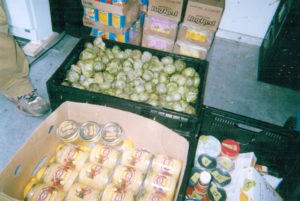

The food pantry is closed for business and will not open today.
Where will the hungry and homeless go now?
It’s Wednesday, the pantry day in Woodstock. Weekly, the food pantry attracts several hundred hungry and homeless people to the basement of a local church where they experience community, gratitude, healing, and a three-day-supply of shared food. The isolation often felt by hungry and homeless people is softened in the pantry. One thing the soul longs for is connection.
As people travel down their life path to the pantry, they lose things. One of the most soul-strangling downsides of this new-found simplicity is isolation experienced as people become cut off from their community. This experiences always changes reality.
When people no longer fit in, their voices become smaller and smaller and smaller until, finally, all is silent.
The rule is this: As the community for the hungry and homeless diminishes, so diminishes the support system.
All things are connected and intertwined but we have a difficult time remembering this when we are in our most alone circumstances in life. With assistance, we begin to recall our spiritual connections and know we are not along, not forgotten.
But, with the Coronavirus, this is very challenging. A few things are in play here.
First, for those needing to shelter in place, the main question is this: ” Where will I go?” Sofa surfing won’t happen anymore. The cemetery will work as long as it doesn’t snow or rain.
Second, a person without food can think of nothing else: “Where can I get food?”
For the hungry and homeless person in Woodstock, that focus is real because the food pantry closed.
At a time when the people need this food the most, the pantry is closed.
“Where can I get food?”
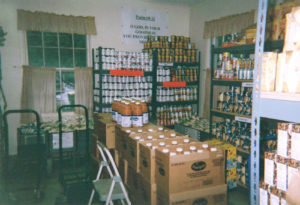
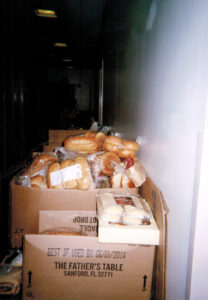
Thank you for reading this blog post!
Please refer it to your preferred social media network.
Thurman Greco
Woodstock, New York

Hunger and Healing for Ourselves and our Planet During this Spring Solstice

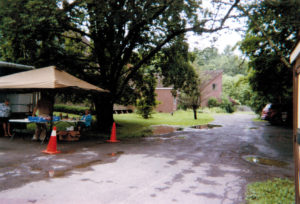
Throughout the month, and especially on March 19th, whenever you find a time and place that fits your schedule…sit quietly for a few moments and visualize a world where positive renewal and growth exists for all beings.
Invite adequate housing, nutritious food, and reliable quality healthcare to become a reality for all.
Plant spiritual seeds to nurture goals and dreams of everyone. Reflect on all the wonderful opportunities available in our world for growth and hope throughout our planet.
Spend a moment including goals for housing and food and healthcare for those who have insufficient resources
Honor the mystical and magical change of seasons creating space for the spiritual growth for everyone.
Check in with yourself now. Give your spirit the support it needs and seeks to bring housing, nutrition, and good health to everyone on our planet.
Quiet your mind as you bathe in this new energy created by spring. Invite universal balance, and abundance into our world.
May all beings on this planet live and thrive in peace and harmony.
Thank you for reading this Meditation.
Please refer this article to your preferred social media network.
Thanks again
Thurman Greco.





What I Believe – Seniors in a Food Pantry
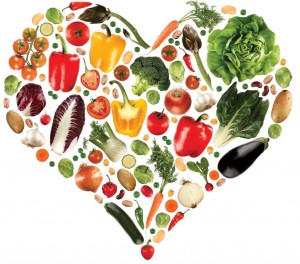
As seniors age, the courage we experience becomes more obvious as we feed hungry people. After all, what does a senior have to lose? Courage is a necessary part of the aging personality because our platform continually shrinks.
We’re often overlooked in the homeless arena. Those looking out forhomeless people focus on an older adolescent (especially if there’s an infant involved), and families. There’s just not much energy left over for hungry people seniors and cocker spaniels.
It never occurred to me that turning away hungry people in the pantry line was something I would do. Or could do. Or even consider doing. Turning away hungry people was not an option.
I came to the pantry as a crone or harridan depending on the circumstances and a person’s attitude toward me and my attitude toward hunger. I brought already formed opinions and beliefs, many of which were with me at birth.
Some argue that people are born as blank slates. I can’t agree. For one thing, I never experienced a blank slate when it came to hungry people. I didn’t have an “aha” moment when I met my first hungry person. I didn’t examine the value of feeding hungry people in a philosophy or government class. I never, at any time, analyzed the concept of feeding the hungry.
Because I lived my opinions about hunger, and because I got up close and personal with hungry people in Mexico and Venezuela, I was comfortable with the concept of feeding hungry people.
I never even considered not feeding hungry people I the food pantry. When I saw them, I remembered moments in Mexico and Venezuela and realized hunger is an intensely personal situation accompanying malnourishment. Hunger can lead to starvation.
Hungry people needing food are voiceless. Even though it’s harder on those with mental and emotional issues, it impacts everyone spiritually.
As they distribute pantry food, volunteers reduce costs in other areas of government: healthcare, housing, education.
A long-term poor diet contributes to illness which poor people can’t afford. Healthcare costs get shuffled over to taxpayers. When forced to choose between housing and food, the hungry often opt for housing. Later, if they can’t pay the housing costs and end up homeless. This results in further tax bills.
When school children are too hungry to learn, the damage is long term. They risk becoming uneducated adults unable to qualify for employment. Our problems flow to the next generation and the future.
DANA
“Hi, Dana. Come on in and shop. How’re you doing this week?”
“Fred’s still in the hospital. He’s been diagnosed with kidney disease and he’ll be on a special diet when he comes home.”
“I’m sorry to hear that.”
“I’m so glad you sent me to Dr. Longmore. He told me exactly who to go see, what paperwork to get, everything I needed to get care for him. I hope Fred’s coming home soon.”
“Dana, I’m so happy to hear this.”
“Thank God the pantry has all these fresh fruits and vegetables. By the way, do you have any laundry soap today?”
“I wish!”
I met Dana the first morning I worked in the pantry and she shared her adventures with me every week from that pantry day on. Of all the people going through the line in the pantry, I probably learned more about her than anyone else.
I never learned where she lived, how many children she had, where she came from or anything like that. What I learned from her was a running commentary of present tense food insecurity. She shared her daily struggle as she traveled through life trying to keep a roof over her head, clothes on her back, and food in her refrigerator.
Walking through the line weekly, she shared her life with me. I learned how she found a coat for the winter when the old one wore out and she had no money.
“Dana, your coat is beautiful!” It’s going to keep you so warm!”
“Yes, it is, isn’t it? You should have seen it when I found it. It was filthy!” I couldn’t even tell what color it was. I took it home, put it in the tub and worked on it all afternoon ’til I cleaned it up. Now look at it. It’s a perfect fit!”
I learned how she struggled to keep her car going…and then finally gave it up.
“The bus is working out real well over here. I catch it about two blocks from my apartment in Saugerties and ride it over. I wait in the hall ’til it comes back to take me home. I only have to carry my groceries about five blocks in all! I’m so lucky I found this bus. I get to ride free because I’m a senior!”
Dana was the most confirmed optimist shopper in the line. And, when Dana was in the line, I was the most confirmed optimist pantry volunteer in the place.

Thank you for reading this article! Please refer it to your preferred social media network.
Thurman Greco
